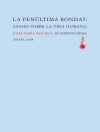This book explores the intersections between dreaming and the literary imagination, in light of the findings of recent neurocognitive and empirical research, with the aim to lay a groundwork for an empirically informed aesthetics of dreaming. Drawing on perspectives from literary theory, philosophy of mind and dream research, this study investigates dreaming in relation to creativity and waking states of imagination such as writing and reading stories. Exploring the similarities and differences between the ‘language’ of dreams and the language of literature, it analyses the strategies employed by writers to create a sense of dream in literary fiction as well as the genres most conducive to this endeavour. The book closes with three case studies focusing on texts by Kazuo Ishiguro, Clare Boylan and John Banville to illustrate the diverse ways in which writers achieve to ‘translate’ the experience and ‘language’ of the dream.
विषयसूची
Contents.- Acknowledgments.- 1. Introduction.- 2. 1. Toward an Aesthetic of Dreaming. From Freud to Neuroscience. Evolutionary Perspectives on Dreaming and Waking Fictions.- 3. 2. Dreaming and Waking Imagination. The Spectrum of Imagination. The Dreamer as Author, the Author as Dreamer. The Dreamer as Reader, the Reader as Dreamer.- 4. 3. Dreaming Fictions, Writing Dreams. The Diversity of Dream Types. The ‘Language’ of Dreams.Translating the ‘Language’ of Dream.- 5. 4. Conjuring up the Dream: Three Literary Case Studies. Writing a Dream: Kazuo Ishiguro, The Unconsoled(1995) Dreaming of Wonderland: Clare Boylan, Black Baby (1988) Dreaming Up the Past: John Banville, The Sea (2005).- 6. Conclusion.- Notes.- Bibliography.- Index.
लेखक के बारे में
Dr Michaela Schrage-Früh is a lecturer at the University of Limerick, Ireland and at the University of Mainz, Germany. Her areas of academic interest include literature and dreams, contemporary poetry and fiction, and women and ageing studies. She is the author of Emerging Identities: Myth, Nation and Gender in the Poetry of Eavan Boland, Nuala Ní Dhomhnaill and Medbh Mc Guckian (2004).












